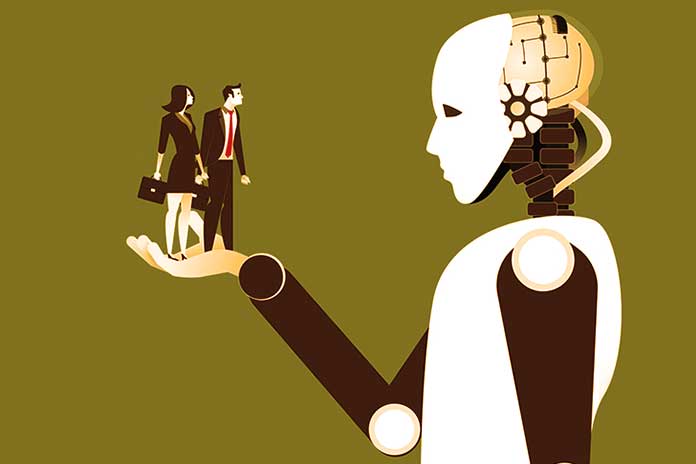The common prejudice is as follows: Artificial intelligence automates production processes and thereby destroys jobs. The common prejudice is as follows: Artificial intelligence automates production processes and thereby destroys jobs. A closer look at customer business reveals why this is not the case.
The ironic swan song for artistic creativity in a cold plastic world heralded a revolution in pop culture. Even then, it was confirmed that good ideas do not fall by the wayside but can be better implemented with new technology. This is especially true of artificial intelligence today. It is linked to the promise of automating tasks and processes that humans have previously had to cope with on their own. And often in the laborious work through routines that arise in some form in every industry. If it weren’t for the downside, according to which AI destroys jobs. But how is the job market looking? Is there any evidence that confirms this prejudice?
The Upswing Creates New Jobs
The shortage of skilled workers, in particular, will keep in suspense for longer because the economy is growing. According to a study by the consulting firm EY 2018, this led to almost 580,000 new jobs and an unemployment rate of 5.3 percent (January 2019). The consultants are forecasting 440,000 additional jobs this year. The upswing is losing momentum, but digitization will not result in mass layoffs in the short term.
AI will undoubtedly push the development towards even more digital and automation. How many jobs will be lost or workers replaced within the next ten years remains uncertain? But what is already certain: Automation can help employees hand over monotonous tasks and become more effective in their studies. It is also clear that we have to adjust to the changes. As? Let’s take customer service as an example: AI is already heavily automated there. It supports companies in looking after customers more efficiently while reducing costs and relieving employees.
Also Read: Artificial Intelligence: Why Technology Is Driving E-Commerce
Act With Foresight
An online shop loses over 75 percent of its sales on average because customers do not buy the content in the shopping cart. Companies that use AI can analyze the collected data, reduce shopping cart shrinkage, and address shop visitors in real-time and personalized ways. For example, AI can calculate in advance how, when, and with whom it makes sense to contact.
These findings help companies to effectively counteract callbacks or offer suggestions at the right time with proactive chats. Both companies and customers benefit: the shop operators direct visitors to their website to the desired action and improve their service experience. Consumers get the support they need at precisely the right moment.
Artificial Intelligence In The Workplace
But what about the employees? Again, customer service is a good example. Contact centers have one of the highest turnover rates anywhere. AI can take over many everyday work steps here, but it does not replace employees. User-oriented AI tools can soften the stressful ordinary contact center and at the same time contribute to fulfilling customer wishes as well as company goals. For example, employees get an instant overview of customer transactions and conversation history to answer customer questions faster.
Natural Language Processing (NLP) systems trained to recognize spoken keywords can provide helpful instructions or notes for agents. They no longer have to search for them manually in applications, reports, or data records while communicating with the customer in parallel. There are also virtualized training systems that employees use independently to refresh their knowledge or acquire new skills. Certainly, bots are increasingly taking on recurring and trivial tasks. However, the need for intuition, empathy, common sense and problem-solving skills remains, just like the customer’s wish to speak to a natural person at a certain point in the conversation.
Design Contact Center Systems Intuitively
Our experience shows: If agents use the new technologies, this contributes to the satisfaction of the customers and the agents themselves. They make work more pleasant. However, employers and technology providers like Genesys are responsible for making the new systems as intuitive as possible to become “super agents.”
The requirements for agents are changing. Well-defined, repetitive tasks are becoming increasingly automated. This shifts the agents’ focus of activity towards more complex and higher-value tasks. Skills such as emotional intelligence, problem-solving skills, and knowledge of data analysis are gaining importance. Bots reach their limits that humans master with ease: The super-agent can cater to the practical as well as the emotional needs of the customer while working seamlessly with his AI colleagues.
AI will soon be just as essential to outstanding customer service for contact center workers as the calculator is for accountants. This approach – implementing good ideas with AI – does not fit the job killer image often attributed to AI. Other industries are welcome to imitate him.
Also Read: Why Is Artificial Intelligence So Important?
